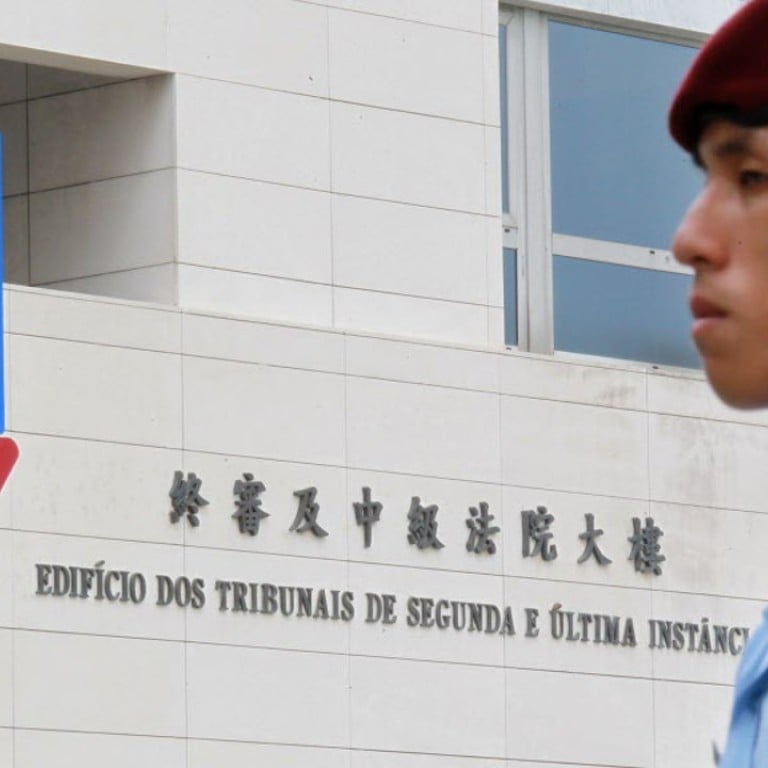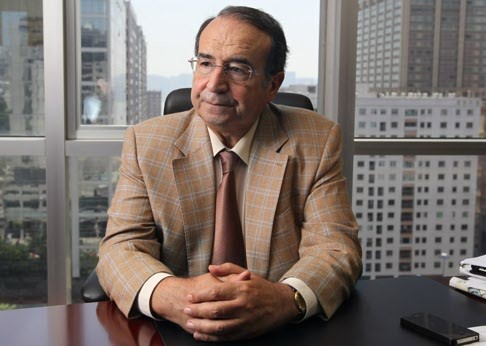
Macau handed Hong Kong residents to mainland authorities, despite court declaring it illegal
Legal experts pose questions on the ability of Hong Kong and Macau to safeguard their citizens’ rights under legal cooperation agreement
Law enforcement agencies in Macau used extrajudicial means to turn over at least three people – two of them Hong Kong permanent residents – to the mainland authorities in recent years, according to court documents and sources .
Macau’s Court of Final Appeal ruled in 2007 and 2008 that their return to the mainland was illegal and undermined justice in Macau, but apparently no sanctions were imposed upon the agencies involved. The legitimacy of another case was raised by local media in 2015.
As the mystery of how five Hong Kong booksellers ended up “assisting investigations” on the mainland remains murky, fears are growing stronger both in Macau and Hong Kong over the possible use of extrajudicial methods – and the terms of the agreement for surrender of fugitives between the special administrative regions, which have been discussed behind closed doors for two and a half years.
A lawyer based in Macau, who asked not to be identified, said: “All of this causes me great concern as a lawyer and also as a citizen. It’s futile to have illusions ... China will continue to detain people and send them back to the mainland with the collaboration of the local authorities.
“Probably the agreement is to legitimise what they have already been doing, because they know it’s illegal.”
On March 18, 2007, a woman took a ferry from Hong Kong to Macau, but it was to be no ordinary trip. When crossing the border, she was intercepted by immigration officials “to collaborate in an investigation,” a court document reads.

... it was insisted to proceed with such a return, without a law or agreement, without an organised process, without allowing the defendant’s defence and without an order from a judge. These acts discredit the justice, undermine the rule of law ...
But Macau’s Court of Final Appeal, according to a document from March 20, 2007, had a different understanding: “As there are no interregional or local rules which regulate the return of fugitives between mainland China and Macau ... the Public Prosecution Office, the Judiciary Police or other public authorities can not detain an individual who is being sought by Interpol, in order to return them to the mainland.”
Despite Macau’s top court ruling, on February 6, 2008, another woman, also permanent resident of Hong Kong, who allegedly committed a burglary crime on the mainland, was detained while entering Macau.
According to court documents, the director of the Judiciary Police said that Macau had followed Interpol’s instructions.
The Court of Final Appeal concluded: “This court having already decided… in 2007 that it was illegal to return fugitives to mainland China authorities ... it was insisted to proceed with such a return, without a law or agreement, without an organised process, without allowing the defendant’s defence and without an order from a judge. These acts discredit the justice, undermine the rule of law and do not confer prestige to the Macau SAR.”
“We know of some isolated cases. But the total number of people only the police knows,” Jorge Neto Valente, head of the Macau Lawyers Association, said. “Regardless if there are many or few cases, the principle is wrong.”
The latest case that raised legal questions surfaced in July last year, involving Wu Quanshen, a former member of China’s Communist Party who was among Interpol’s 100 most wanted fugitives for alleged corruption. At the time, Wu’s residency permit, which was valid until 2017, was revoked by Macau’s government after receiving a notification from the mainland.

State-run news agency Xinhua wrote on September 11, 2015: “His case highlighted the importance of cross-border police cooperation.
The jurisdictional integrity of Hong Kong and Macau as well as the rule of law in both jurisdictions are both seriously degraded by these extrajudicial kidnappings.
“When criminals cannot be extradited, authorities resort to other means such as repatriation due to illegal entry. They devote long hours to collecting evidence studying different laws that can be used.”
A spokesperson for Macau’s Secretary for Security said on Friday: “everything is according to the law and the international obligations.”
The bureau did not reveal how many fugitives Macau transferred to China.
Macau is currently negotiating agreements for the surrender of fugitives with Hong Kong and the mainland. There’s no official timetable for the conclusion of negotiations between the former Portuguese enclave and its neighbouring city.
Simon Young Ngai-man, associate dean in the Faculty of Law at the University of Hong Kong, said that if the rule of law is respected in Macau, “then Hong Kong should still feel confident about settling a fugitive agreement.”
But if Macau and the mainland sign a fugitive surrender agreement – as is expected to happen this year – the Hong Kong government needs “to be much more circumspect with each Macau surrender,” he noted.
Benny Tai Yiu-ting, associate professor of law at the University of Hong Kong and one of Occupy Central’s original leaders, said that there were reasons for “grave concern” and that the Hong Kong government “can provide no meaningful guarantee” against the extra-judicial removal of anyone who were to be handed over to Macau.
In local lawyer Michael Vidler’s opinion: “The jurisdictional integrity of Hong Kong and Macau as well as the rule of law in both jurisdictions are both seriously degraded by these extrajudicial kidnappings.”

